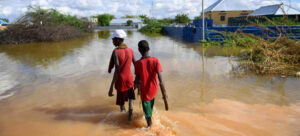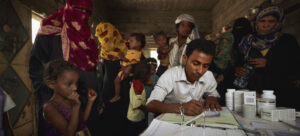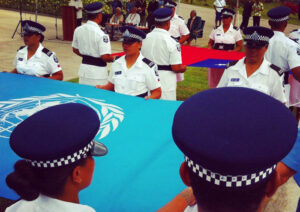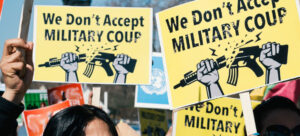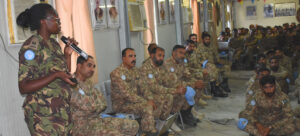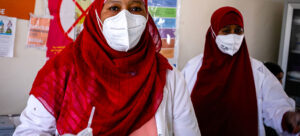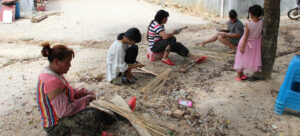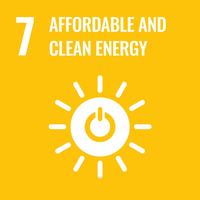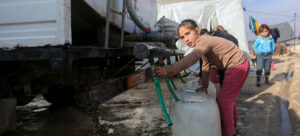In a video message to the World Health Assembly, the decision-making body of UN agency WHO, Mr. Guterres warned against the dangers of “a two-speed global response”, a concern he has frequently expressed.
“Sadly, unless we act now, we face a situation in which rich countries vaccinate the majority of their people and open their economies, while the virus continues to cause deep suffering by circling and mutating in the poorest countries,” he said.
“Further spikes and surges could claim hundreds of thousands of lives, and slow the global economic recovery,” he added.
Action on vaccine access
The UN chief called for coordinated action in three areas that will pave the way to recovery and a sustainable future for people and the planet, starting with solidarity to stop the virus.
“World leaders must urgently step up with a global plan for equitable access to COVID-19 vaccines, tests and treatments,” he said, emphasizing the need to fully fund established mechanisms for equitable vaccine distribution.
Adding that “we are at war with a virus”, Mr. Guterres reiterated his appeal for G20 nations to establish a Task Force “able to deal with the pharmaceutical companies and other key stakeholders.” The goal would be to at least double vaccine manufacturing capacity through means such as voluntary licenses and technology transfers.
Bolster health care
For his second point, Mr. Guterres focused on boosting primary health care and universal health coverage.
“COVID-19 cannot be seen in isolation from the fundamental problems with our health systems: inequality, underfunding; complacency, neglect. With the right primary health care systems in place, we will recover more quickly from this pandemic, and prevent the next before it takes hold,” he said.
But while robust health systems are a start, they are not enough, he added, and countries must prepare for the next global health emergency.
Prepare for the next pandemic
The Secretary-General underlined support for the recommendations made by the Independent Panel for Pandemic Preparedness, which this month called for overhauling the current warning systems.
He said high-level political commitment is needed to transform the existing system, and that the World Health Organization (WHO) must be at the centre of global preparedness. The agency also must have adequate resources and be fully empowered to do its job.
Not yet out of the woods
In his address to the Assembly, WHO chief Tedros Adhanom Ghebreyesus reported that there have been more COVID-19 cases so far this year than in the whole of 2020.
“Almost 18 months into the defining health crisis of our age, the world remains in a very dangerous situation,” he said. “On current trends, the number of deaths will overtake last year’s total within the next three weeks.”
Regardless of vaccinate rates, “no country should assume it is out of the woods,” he added. And although none of the COVID-19 variants has significantly undermined current vaccines, the virus is constantly changing.
Vaccines: “A scandalous inequity’
Tedros said every country can do more, including in increasing surveillance and testing, protecting health workers, and fighting against misinformation. They can also implement national vaccine programmes, and donate excess doses to the global solidarity initiative, COVAX.
He described the ongoing vaccine crisis as “a scandalous inequity that is perpetuating the pandemic” as most doses, or 75 per cent, have been administered in just 10 countries.
“There is no diplomatic way to say it: a small group of countries that make and buy the majority of the world’s vaccines control the fate of the rest of the world.”
COVAX has shipped roughly 72 million doses to some 125 developing nations, but those vaccines represent barely one per cent of their combined populations.

© UNICEF/Bhushan Koyande
Health workers conduct a COVID-19 vaccination awareness campaign in a neighbourhood in Mumbai, India.
Millions more doses needed
Tedros pushed for countries to vaccinate at least 10 per cent of the global population by September, with a drive to reach 30 per cent by December.
“Sprinting to our September goal means we must vaccinate 250 million more people in low- and middle-income countries in just four months, including all health workers and the most at-risk groups as the first priority,” he said.
The WHO Director General also highlighted a proposal by the International Monetary Fund (IMF) to vaccinate 40 per cent of the world’s people by the end of the year, and 60 per cent by 2022. Discussions are underway on how to make these goals achievable.
Tedros also welcomed countries’ commitment to donate doses, including announcements made by G20 nations at their health summit last Friday.
“But to achieve the goals for September and the end of the year, we need hundreds of millions more doses, we need them to go through COVAX, and we need them to start moving in early June,” he said.
Tedros urged vaccine manufacturers to ensure countries can quickly share their doses through COVAX. They should also give the mechanism first right of refusal on new volume of vaccines, or to commit 50 per cent of their volumes to COVAX this year.
“And we need every country that receives vaccines to use them as quickly as possible. No dose can lay idle, or worse, be thrown away,” he said.
“The bottom line is that we need a lot more doses, we need them fast, and we must leave no stone unturned to get them.”
Tribute to health workers
Both the Secretary-General and the WHO chief dedicated parts of their speeches to pay tribute to the world’s health workers.
Tedros opened his remarks with stories of some of these professionals, who “have stood in the breach between life and death.”
WHO estimates around 115,000 health and care workers have also died while working to save lives and serve others.
“Health and care workers do heroic things, but they are not superheroes. They are humans like the rest of us,” Tedros said, noting that many feel frustrated, helpless and unprotected in the pandemic.
“We owe them so much, and yet globally health and care workers often lack the protection, the equipment, the training, the decent pay, the safe working conditions and the respect they deserve.”
